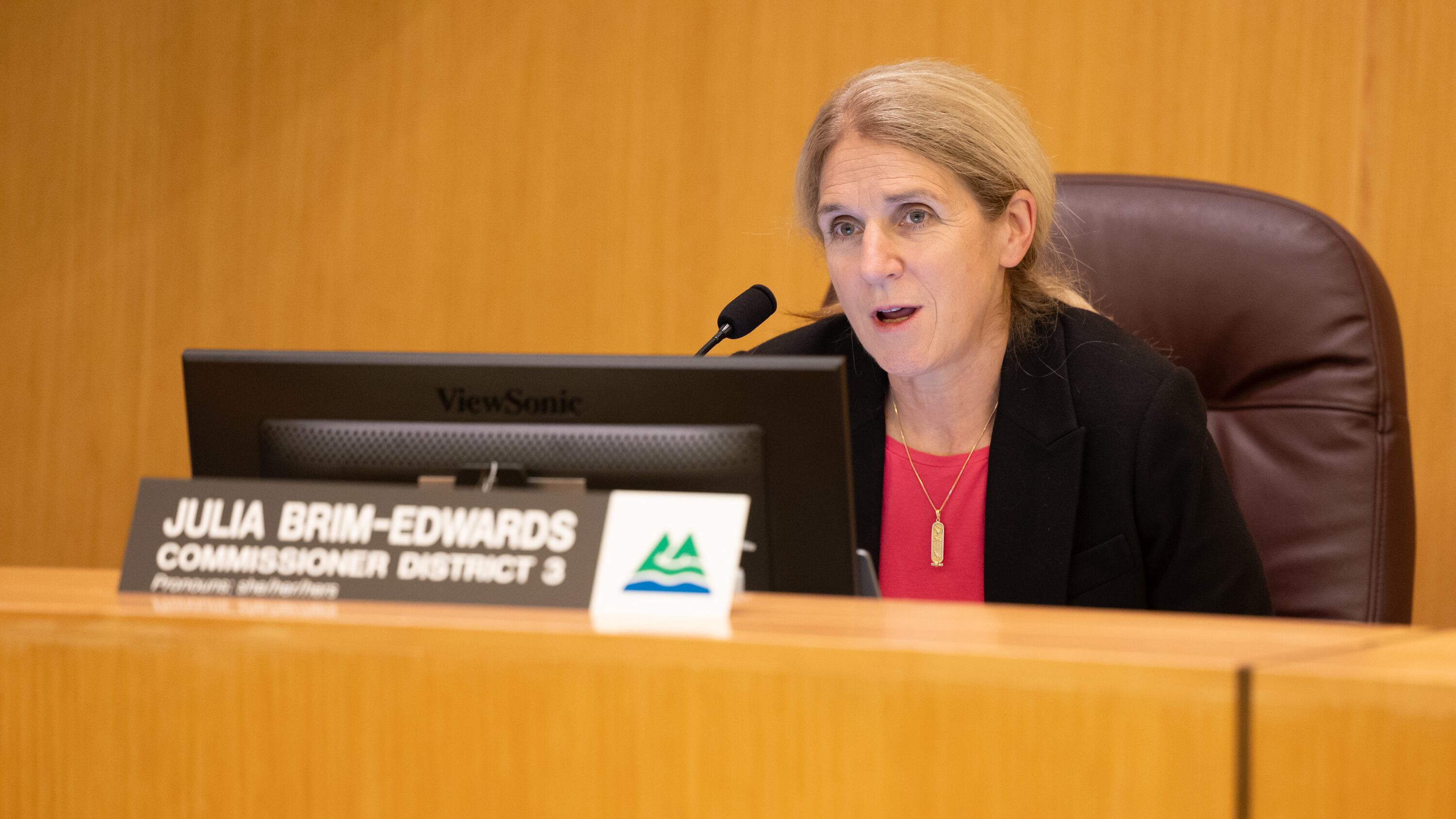The Multnomah County Board of Commissioners voted today to spend an additional $6 million to fill a hole in the county corrections budget, a result of a decline in state funding as jail populations shrank during the pandemic.
The county furiously lobbied state lawmakers to fill the funding gap, arguing that jail populations are expected to rebound and that state payments haven’t kept up with the rising costs of handling a population facing increasingly acute mental illness and substance use disorders. After legislators declined to do it, Sheriff Nicole Morrisey O’Donnell told county commissioners that without additional county funds she’d have to close 219 jail beds, sending many inmates out onto the streets.
The county’s Department of Community Justice, which oversees inmates on parole or probation, faced similar cuts.
The budget crunch is the result of a decades-old agreement in which the state of Oregon pays counties to hold convicted criminals serving short sentences in county jail rather than state prison. The payments are calculated based on the number of inmates being supervised by the county, which has declined during the pandemic.
The result is an ongoing debate, repeated year after year, between county and state policymakers over who’s responsible for paying the increased costs of housing and supervising convicted criminals.
Nathan Vasquez, the prosecutor challenging Multnomah County District Attorney Mike Schmidt in next year’s election, testified in favor of the county backfilling the funds. “These cuts will wreak havoc on our county, which is already overwhelmed by repeat offenders, unprecedented violence, and homicides that are occurring in our county at historic rates that we have not seen,” he said at a county board meeting this morning.
So commissioners gave O’Donnell and Vasquez what they wished, voting to restore the sheriff’s office’s budget hole and most—but not all—of DCJ’s. The agreement will restore 18 or the 24 budgeted positions within the department threatened by the loss in state funding.
Commissioner Julia Brim-Edwards introduced an amendment to restore the remaining DCJ positions, but it was voted down. “I fundamentally believe the lower jail population is not due to lower levels of crime,” she said. “Rather, it’s because we have a frayed public safety system that’s been underresourced.”
The county is pursuing grants to restore some of the positions, and is continuing to lobby state legislators to restore the losses or adjust the formula. In the meantime, the commissioners voted to earmark funds for two additional DCJ positions if those efforts fail.

